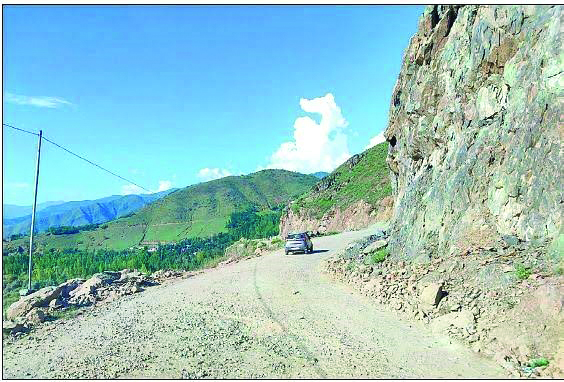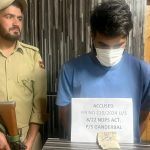As Jammu and Kashmir braces for the upcoming Assembly Elections, the air in Bandipora Constituency of North Kashmir is charged with a demand that has echoed for decades but remains unresolved. Among the 115,878 voters in this north Kashmir constituency, one issue reigns supreme: the long-overdue expansion of the Bandipora-Srinagar highway. What should be a 55-kilometer lifeline connecting this culturally rich area to the capital city has instead become a symbol of neglect and a barrier to the constituency’s aspirations.
Bandipora’s untapped potential is undeniable. From the breathtaking Wular Lake to the pristine valley of Gurez, tourism has flourished, promising prosperity. Yet, the highway, often marred by dangerous delays, stands as an enduring obstacle. The road, which should take just over an hour to traverse, frequently stretches into two hours or more, effectively cutting off Bandipora from the economic and social lifeblood of the state.
Across the constituency, the frustration is palpable, with voices rising in unison to demand not just promises but action. A post by a local resident on social media captures the sentiment: “The road isn’t just a convenience; it’s our connection to the world. We remain stranded in a time loop where leaders come, deliver speeches, and then vanish without a trace of accountability. Every election, they speak of progress, but the road continues to crumble under our feet.”
This frustration resonates widely, from the bustling markets of Bandipora to the remote hamlets dotting the countryside. The lifeline meant to connect Bandipora to Srinagar has instead become a daily struggle. Mudasir Ahmad, a 35-year-old resident, expressed his anguish, saying, “It’s not just a road, but the hope and future. My children’s education, my family’s healthcare—all depend on us being able to reach Srinagar quickly. But what we get are empty promises. It’s like they’ve forgotten us.”
Bandipora has indeed seen a resurgence in tourism, especially with the increasing footfall in places like Authwatoo, Sirander, and Gurez. These regions have witnessed a surge in visitors drawn by the natural beauty, yet the constituency’s infrastructure remains woefully inadequate. While tourism has brought a glimmer of hope, the locals feel they are on the losing end of the bargain.
Arshid Ahmad, a young entrepreneur in Gurez, voices a common concern: “Tourists come here, marvel at the beauty, and leave. But we are left with a road that breaks down every few kilometers. We’re supposed to be a tourist destination, but we don’t have the infrastructure to match. How are we supposed to grow?”
The road is not just a hindrance to daily life; it has a direct impact on education, healthcare, and economic opportunities. For Bandipora’s youth, the poor connectivity feels like a deliberate barrier between them and a better future. Nazrana, a university student, echoed this sentiment, stating, “We have talent in Bandipora, but opportunities remain out of reach. Traveling to Srinagar for education or work is a nightmare. This road delays everything—our progress, our future. It’s as if the government has left us behind.”
Mushtaq Malik, a retired government employee, captures the frustration of many: “Every election, it’s the same story. They talk about roads, hospitals, schools, but once they’re elected, we don’t see them again. This road is our lifeline, but it feels like a noose around our necks, choking any chance of growth. It’s time they stopped treating us like votes and started treating us like people.”
The demand for the Bandipora-Srinagar highway’s expansion is not just about convenience—it’s about survival. The constituency’s economic growth, access to education, and basic healthcare all hinge on this critical infrastructure. For Bandipora’s people, this road symbolizes both the neglect they have endured and the hope they still hold on to.
As the assembly elections loom, the voters of Bandipora are making their voices heard: they will not be swayed by empty rhetoric this time. Their demand is simple—they want a road that connects them not just to Srinagar, but to a brighter future.








